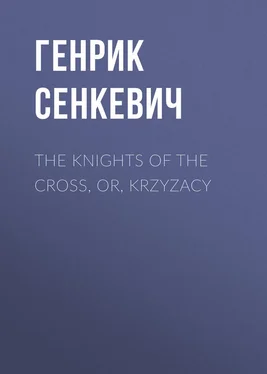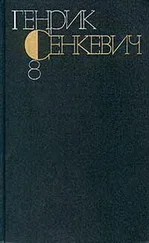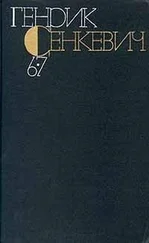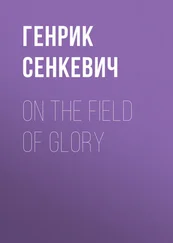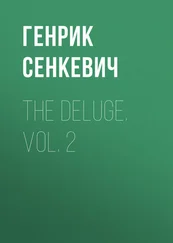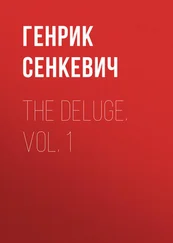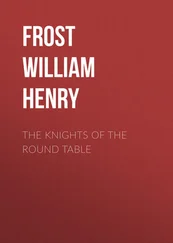Генрик Сенкевич - The Knights of the Cross, or, Krzyzacy
Здесь есть возможность читать онлайн «Генрик Сенкевич - The Knights of the Cross, or, Krzyzacy» — ознакомительный отрывок электронной книги совершенно бесплатно, а после прочтения отрывка купить полную версию. В некоторых случаях можно слушать аудио, скачать через торрент в формате fb2 и присутствует краткое содержание. Жанр: foreign_antique, foreign_prose, на английском языке. Описание произведения, (предисловие) а так же отзывы посетителей доступны на портале библиотеки ЛибКат.
- Название:The Knights of the Cross, or, Krzyzacy
- Автор:
- Жанр:
- Год:неизвестен
- ISBN:нет данных
- Рейтинг книги:4 / 5. Голосов: 1
-
Избранное:Добавить в избранное
- Отзывы:
-
Ваша оценка:
- 80
- 1
- 2
- 3
- 4
- 5
The Knights of the Cross, or, Krzyzacy: краткое содержание, описание и аннотация
Предлагаем к чтению аннотацию, описание, краткое содержание или предисловие (зависит от того, что написал сам автор книги «The Knights of the Cross, or, Krzyzacy»). Если вы не нашли необходимую информацию о книге — напишите в комментариях, мы постараемся отыскать её.
The Knights of the Cross, or, Krzyzacy — читать онлайн ознакомительный отрывок
Ниже представлен текст книги, разбитый по страницам. Система сохранения места последней прочитанной страницы, позволяет с удобством читать онлайн бесплатно книгу «The Knights of the Cross, or, Krzyzacy», без необходимости каждый раз заново искать на чём Вы остановились. Поставьте закладку, и сможете в любой момент перейти на страницу, на которой закончили чтение.
Интервал:
Закладка:
Until the time of his imprisonment in Krakow, he did not realize how dearly he loved this uncle who replaced, for him, father and mother. But now he realized it very well; and he felt that after his uncle's death, life would be very lonesome for him, alone, without relatives, except the abbot who held Bogdaniec in pledge, without friends and without anyone to help him. The thought came to him that if Macko died, it would be one more reason for vengeance on the Germans, by whose means he had nearly lost his head, by whom all his forefathers had been killed, also Danusia's mother and many other innocent people, whom he knew or about whom he had heard from his acquaintances – and he began to say to himself:
"In this whole kingdom, there is no man who has not suffered some wrong from them, and who would not like to avenge those wrongs." Here he remembered the Germans with whom he fought at Wilno, and he knew that even the Tartars were less cruel.
The coming dawn interrupted his thoughts. The day was bright but cold. Evidently Macko felt better, because he was breathing more regularly and more quietly. He did not awaken until the sun was quite warm; then he opened his eyes and said:
"I am better. Where are we?"
"We are approaching Olkusk. You know, where they dig silver."
"If one could get that which is in the earth, then one could rebuild Bogdaniec!"
"I see you are better," answered Zbyszko laughing. "Hej! it would be enough even for a stone castle! We will go to the fara ,[65] because there the priests will offer us hospitality and you will be able to make your confession. Everything is in God's hands; but it is better to have one's conscience clear."
"I am a sinner and will willingly repent," answered Macko. "I dreamed last night that the devils were taking my skin off. They were talking German. Thanks be to God that I am better. Have you slept any?"
"How could I sleep, when I was watching you?"
"Then lie down for a while. When we arrive, I will awaken you."
"I cannot sleep!"
"What prevents you?"
Zbyszko looked at his uncle and said:
"What else can it be, if not love? I have pain in my heart; but I will ride on horseback for a while, that will help me."
He got down from the wagon, and mounted the horse, which his servant brought for him; meanwhile, Macko touched his sore side; but he was evidently thinking about something else and not about his illness, because he tossed his head, smacked his lips and finally said:
"I wonder and wonder, and I cannot wonder enough, why you are so eager for love, because your father was not that way, and neither am I."
But Zbyszko, instead of answering, stretched himself on the saddle, put his hands on his hips, gave his head a toss and sang:
"I cried the whole night, cried in the morning,
Where have you been, my sweet girl, my darling!
It will not help me, if I mourn for thee,
Because I am quite sure, you will not see me."
"Hej!"
This "hej" resounded in the forest, reverberated against the trunks of the trees, finally reëchoed in the far distance and then was lost in the thickets.
Again Macko felt his side, in which the German spearhead had lodged and said, moaning a little:
"Formerly the people were wiser!"
Then he became thoughtful, as if recollecting the old times; and he added:
"Although even then some of them were stupid also."
But, in the meantime, they emerged from the forest, behind which they perceived the miners' sheds, and further walls, built by King Kazimierz, and the tower of the fara erected by Wladyslaw Lokietek.
The canon of the fara beard Macko's confession and offered them hospitality; they remained there over night, and started the next morning. Beyond Olkusk, they turned toward Szlonsk,[66] and on its boundaries, they proposed to ride toward Wielkopolska. The road was laid out through a large forest, in which there was heard toward sunset, the roaring of the urus and of the bison, and during the night the eyes of wolves were seen shining behind the thick hazelnut trees. But the greatest danger which threatened the traveler on this road, was from the German and Germanized knights of Szlonsk, whose castles were erected here and there near the boundaries. It is true, that because of the war with the Opolczyk, Naderspraw, whom the Silesians were helping against King Wladyslaw, the majority of these castles had been destroyed by Polish hands; it was necessary, however, to be watchful, and especially after sunset, and to have one's weapons ready.
They were riding so quietly, however, that Zbyszko found the journey tedious; when they were about one day's journey from Bogdaniec, they heard the snorting and trampling of horses behind them.
"Some people are following us," said Zbyszko.
Macko, who was awake, looked at the stars and answered like an experienced traveler:
"Day-break is near. Robbers do not attack toward the end of the night."
Zbyszko stopped the wagon; however, placed the men across the road, facing the advancing horses, and waited.
In fact, after a certain time he perceived in the dusk, several horsemen. One of them was riding ahead, and it was evident that he did not wish to hide, because he was singing. Zbyszko could not hear the words of the song; but the gay "hoc! hoc!" with which the stranger ended each refrain, reached his ears.
"Our people!" he said to himself.
After a while he shouted, however:
"Stop!"
"And you sit down!" answered a joyous voice.
"Who are you?"
"And you?"
"Why do you follow us?"
"And why do you obstruct the road?"
"Answer, our crossbows are bent."
"And ours, – thrust out, – aimed!"
"Answer like a man, otherwise woe to you!"
To this a merry song was given, as an answer to Zbyszko.
"One misery with another
They are dancing on the crossway.
Hoc! Hoc! Hoc!
What use have they of dancing?
It's a good thing, anyhow.
Hoc! Hoc! Hoc!"
Zbyszko was amazed at hearing such an answer; meantime, the song stopped and the same voice asked:
"And how is the old man Macko? Does he still breathe?"
Macko rose in the wagon and said:
"For God's sake, they are some of our people!"
Zbyszko rushed forward.
"Who asks about Macko?"
"A neighbor. Zych of Zgorzelice. I have looked for you for a week and inquired about you from all on the road."
" Rety! [67] Uncle! Zych of Zgorzelice is here!" shouted Zbyszko.
They began to greet each other joyfully because Zych was really their neighbor, and also a good man of whom everybody was very fond on account of his mirth.
"Well, how are you?" asked he, shaking hands with Macko. "Still hoc , or no more hoc !"[68]
"Hej, no more hoc !" answered Macko. "But I see you gladly. Gracious God, it is as if I were already in Bogdaniec."
"What is the matter with you; I heard that the Germans had wounded you?"
"They did, dog-brothers! I A head of a spear stuck between my ribs."
"You see!" said Zbyszko, "everybody advises the grease of a bear. As soon as we reach Bogdaniec, I will go with an axe to the barcie ."[69]
"Perhaps Jagienka has some."
"What Jagienka? Your wife's name was Malgochna," said Macko.
"O! Malgochna is no more! It will be three years on St. Michael's day since Malgochna was buried in the priests' field. She was a sturdy woman; may the Lord make his face shine upon her soul! Jagienka is exactly like her, only younger."
"Behind a ravine, there is a mount,
As was mother, such is daughter.
Hoc! Hoc!"
"I told Malgochna not to climb the pine tree because she was no longer young. But she would climb it. The branch broke; she fell and was badly hurt; within three days, she died."
Читать дальшеИнтервал:
Закладка:
Похожие книги на «The Knights of the Cross, or, Krzyzacy»
Представляем Вашему вниманию похожие книги на «The Knights of the Cross, or, Krzyzacy» списком для выбора. Мы отобрали схожую по названию и смыслу литературу в надежде предоставить читателям больше вариантов отыскать новые, интересные, ещё непрочитанные произведения.
Обсуждение, отзывы о книге «The Knights of the Cross, or, Krzyzacy» и просто собственные мнения читателей. Оставьте ваши комментарии, напишите, что Вы думаете о произведении, его смысле или главных героях. Укажите что конкретно понравилось, а что нет, и почему Вы так считаете.
